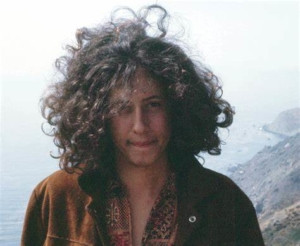Arlo Guthrie, son of the legendary Woody Guthrie, carved his own indelible mark on the landscape of American folk music. His songs, often imbued with storytelling, humor, and poignant social commentary, resonate across generations. From counter-culture anthems to heartfelt ballads, Arlo Guthrie Songs offer a unique window into American life and thought. This exploration delves into the world of Arlo Guthrie’s music, examining his most impactful works and the enduring legacy they have created.
Early Influences and Musical Roots
Born into a family deeply entrenched in folk tradition, Arlo Guthrie’s musical path was almost preordained. His father, Woody Guthrie, remains an iconic figure in American music, known for protest songs and narratives of the common person. This heritage profoundly shaped Arlo’s artistic sensibilities. He absorbed not only the musical style but also the spirit of folk music as a vehicle for storytelling and social engagement. Growing up surrounded by music and activism, Arlo naturally gravitated towards songwriting and performance, carrying forward the Guthrie family legacy while forging his own distinct voice.
“Alice’s Restaurant”: A Generation-Defining Anthem
No discussion of Arlo Guthrie songs is complete without acknowledging “Alice’s Restaurant Massacree.” This epic, rambling talking blues, clocking in at over eighteen minutes, became an unexpected anthem of the anti-war movement and counter-culture of the 1960s. Based on a true, almost absurd, series of events involving Thanksgiving, garbage dumping, and draft dodging, the song’s humor and satirical edge resonated deeply with a generation questioning authority and societal norms.
“Alice’s Restaurant” is more than just a song; it’s a cultural phenomenon. Its rambling narrative, delivered in Guthrie’s signature conversational style, paints a vivid picture of youthful rebellion and the absurdities of bureaucracy. The song’s unexpected length and unconventional structure defied radio norms, yet it gained immense popularity through word-of-mouth and underground airplay. It even inspired a film of the same name, further solidifying its place in popular culture. To this day, “Alice’s Restaurant” remains a Thanksgiving tradition for many, played annually on radio stations across the United States, a testament to its enduring appeal and cultural significance.
 Arlo Guthrie early career
Arlo Guthrie early career
Arlo Guthrie in his early career, showcasing the youthful energy and folk spirit that defined many of his iconic songs.
Beyond “Alice’s Restaurant”: Exploring Guthrie’s Diverse Songbook
While “Alice’s Restaurant” may be his most famous creation, Arlo Guthrie’s musical contributions extend far beyond this single song. His discography is rich and varied, showcasing his talents as a songwriter, interpreter, and storyteller. Songs like “City of New Orleans,” written by Steve Goodman but popularized by Guthrie, demonstrate his ability to connect with and elevate the work of other songwriters. His rendition of “City of New Orleans” became a major hit, showcasing his knack for interpreting songs with warmth and sincerity, making them his own.
Guthrie’s original compositions also reveal a depth and range of themes. Many of his songs explore personal experiences, family life, and observations on American society. He often blends humor with pathos, creating songs that are both entertaining and thought-provoking. Whether singing about everyday life or tackling larger social issues, Arlo Guthrie’s songs consistently display his insightful perspective and his gift for connecting with audiences on a personal level.
Spiritual Depth and Social Conscience in Arlo Guthrie’s Music
Arlo Guthrie’s music is not just entertainment; it often reflects a deeper spiritual and social consciousness. His exploration of faith and community is evident throughout his life and work. His time as a Franciscan lay brother and his involvement with the Kashi Ashram Hindu community in Florida reveal a lifelong spiritual quest that informs his artistic output. This spiritual dimension adds layers of meaning to his songs, often imbuing them with themes of compassion, unity, and a search for deeper meaning.
Furthermore, Guthrie’s social conscience, inherited from his father, remains a consistent thread in his work. While perhaps less overtly protest-focused than some of his earlier songs, his music often subtly encourages reflection on social issues and promotes values of community and inclusivity. The Guthrie Center, established in the old church from “Alice’s Restaurant,” stands as a physical manifestation of his commitment to community service and interfaith dialogue, mirroring the inclusive spirit often found within Arlo Guthrie songs.
“Hard Times Come Again No More” and Enduring Relevance
In more recent years, Arlo Guthrie has continued to create and share music that resonates with contemporary audiences. His rendition of Stephen Foster’s “Hard Times Come Again No More,” recorded during the COVID-19 pandemic, exemplifies his ability to connect historical songs with present-day struggles. This song, featuring collaborations with Jim Wilson, Vanessa Bryan, and Stanley Clarke, speaks to themes of resilience, hope, and unity in the face of adversity – themes that are timeless and particularly relevant in challenging times.
Just as Richie Furay’s recent work seeks to offer solace and hope, Arlo Guthrie’s continued musical output demonstrates his enduring commitment to using song as a means of connection and healing. His willingness to revisit and reinterpret classic songs like “Hard Times Come Again No More,” while also continuing to perform his own extensive catalog, ensures that Arlo Guthrie songs remain a vital and relevant part of the American musical landscape.
Conclusion: The Lasting Gift of Arlo Guthrie Songs
Arlo Guthrie’s contribution to music extends beyond individual songs; it’s about a lifelong dedication to storytelling, social commentary, and the power of music to connect people. From the counter-cultural phenomenon of “Alice’s Restaurant” to his heartfelt interpretations and original compositions, Arlo Guthrie songs have touched hearts and minds for decades. His legacy is not just in the notes he plays or the words he sings, but in the spirit of community, compassion, and insightful observation that permeates his entire body of work. Arlo Guthrie songs remain a valuable and enduring gift to American music and culture, continuing to inspire and resonate with listeners today and for generations to come.

